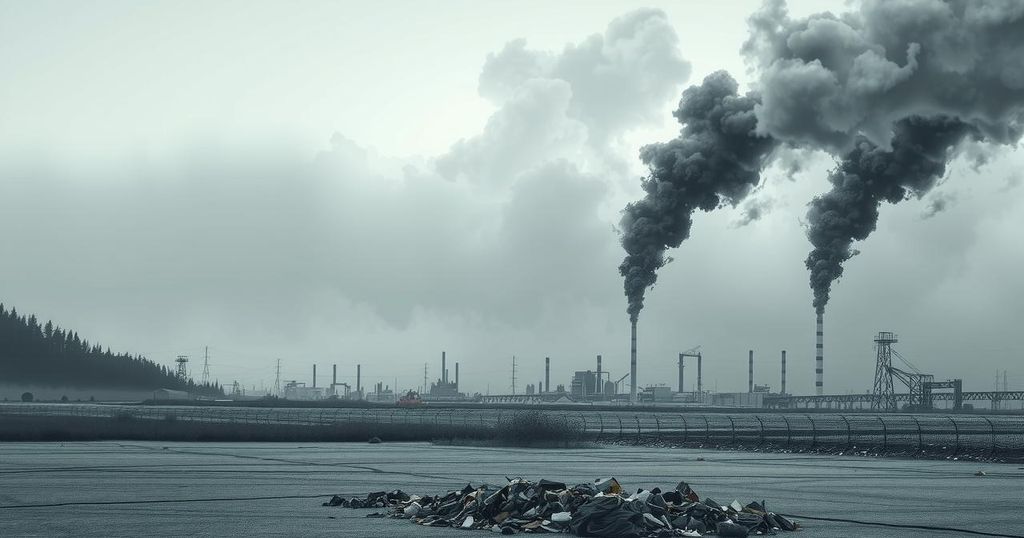In 2024, Bangladesh and Chad were ranked as the highest polluted countries, with air quality levels more than 15 times over WHO guidelines. Only seven countries complied with WHO air quality standards last year. The cessation of US monitoring further endangers pollution data access, particularly for Africa. Additionally, climate change is worsening pollution conditions, drawing attention to the need for collective action.
Bangladesh has been designated as the most polluted country globally in 2024, exhibiting air quality more than 15 times worse than the World Health Organization (WHO) guidelines, as reported by Swiss air quality monitoring firm IQAir. This South Asian nation shares this undesirable title with Chad, while India, Pakistan, and the Democratic Republic of Congo also recorded concerning smog levels. Alarmingly, only seven nations met WHO air quality standards last year, highlighting the severity of the issue.
The countries that complied with WHO air quality requirements are Australia, New Zealand, the Bahamas, Barbados, Grenada, Estonia, and Iceland. The global air quality scenario is further complicated by significant data deficiencies, particularly in Asia and Africa. Many developing nations have depended on air quality sensors located at US embassy and consulate buildings for monitoring smog levels, but the US government recently terminated this initiative, citing budgetary limitations.
Christi Chester-Schroeder, IQAir’s air quality science manager, asserted that the cessation of US monitoring efforts will substantially impact Africa. “Most countries have a few other data sources, but it’s going to impact Africa significantly, because oftentimes these are the only sources of publicly available real-time air quality monitoring data,” she stated. Chad was notably absent from IQAir’s 2023 list due to data limitations, yet it was recognized as the most polluted country in 2022, struggling with Sahara dust and unregulated crop burning.
Chad reported average concentrations of hazardous PM2.5 particles at 91.8 micrograms per cubic meter last year, a slight increase from 2022. The WHO recommends a maximum level of 5 mg/cu m, a target met by only 17 percent of cities last year. India ranked fifth in the pollution standings, with a PM2.5 average of 50.6 mg/cu m, observing a 7 percent decline from the previous year. Noteworthy is that India possessed 12 of the top 20 most polluted cities, with Byrnihat holding the highest level at 128 mg/cu m.
Furthermore, climate change is amplifying pollution levels, as cautioned by Chester-Schroeder, who noted that escalating temperatures contribute to more intense and prolonged forest fires in regions like Southeast Asia and South America. Christa Hasenkopf, director of the Clean Air Program at the University of Chicago’s Energy Policy Institute, warned that at least 34 nations will encounter diminished access to reliable pollution data following the discontinuation of the US monitoring program. Hasenkopf emphasized that the initiative not only enhanced air quality where monitors were deployed but also had positive effects such as increasing life expectancy, thereby justifying its costs. “[It] is a giant blow to air quality efforts worldwide,” she remarked.
The analysis of global air quality conditions underscores a pressing environmental challenge, particularly in Bangladesh and Chad, which have emerged as the most polluted nations in 2024. The diminishing access to reliable data from the United States and the impact of climate change exacerbate the obstacles in addressing pollution. This situation demands urgent and coordinated global efforts to enhance air quality and protect public health.
Original Source: bdnews24.com




